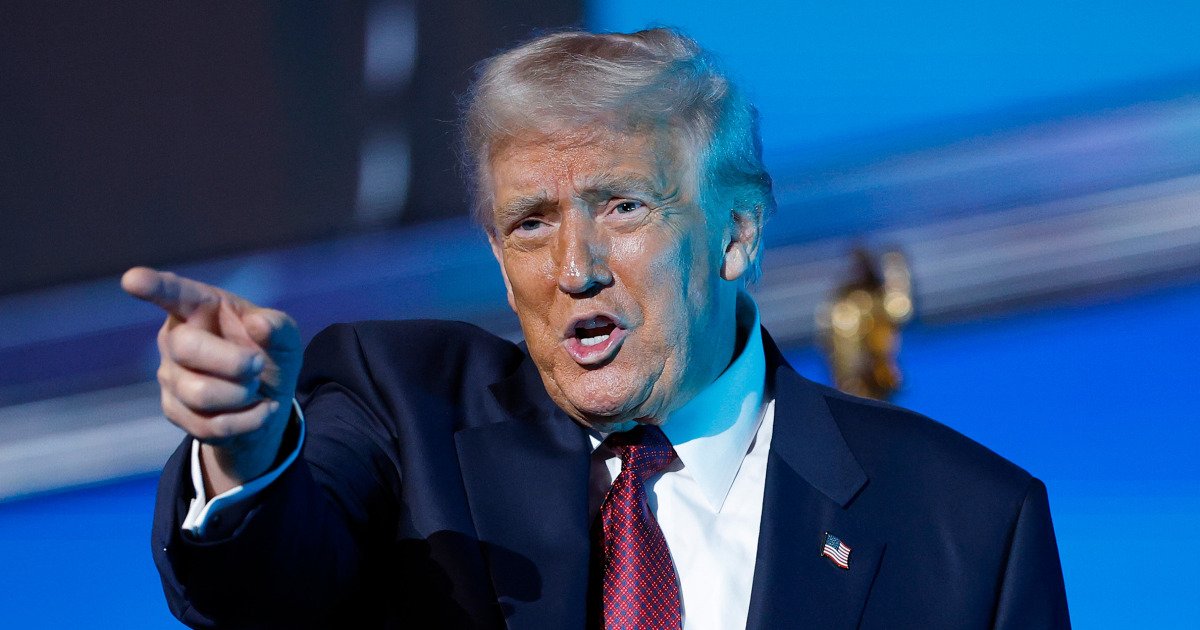Everyone knows Walmart. But not everyone outside Wall Street and corporate America knows its CEO, Doug McMillon, the same way they know Tesla’s Elon Musk, Disney’s Bob Iger or JPMorgan Chase’s Jamie Dimon.
However, McMillon’s impact on the American consumer over the past 12 years is arguably as great, if not greater, than any of those three. Considering affordability from Main Street to Pennsylvania Avenue, he leveraged Walmart’s reputation for low prices while pushing the company to adopt technologies that have helped it compete with (and sometimes beat) its competitors.
It did so while weathering economic and political headwinds that, at times, threatened to make the company the face of big business run amok. Even with criticism from all sides, Walmart remains popular with shoppers.
“McMillon has been a transformational leader who embraced technology to modernize WMT’s operating model and strengthen its long-term competitive positioning,” wrote RBC Capital Markets analyst Steven Shemesh, using Walmart’s ticker symbol.
When McMillon steps down in January, he will leave behind a company that reaches nearly every community in the country.
It is the largest retailer and grocer in the United States, with more than 4,600 physical stores. Over the last decade, it has also become an e-commerce giant. Walmart is also the largest private employer in the country, with 1.6 million associates in the United States. In addition, it has another 5,500 stores abroad.
Even Bentonville, the once sleepy town where Walmart is based, has become a trendy place with sophisticated amenities (and high costs) more in line with major metropolitan areas than rural Arkansas.
McMillon’s tenure has been especially kind to the company’s long-term investors: Walmart’s stock price has gained about 300% since he took over in 2014. The company’s market value exceeds $800 billion, comparable to JPMorgan’s and four times larger than Disney’s.
McMillon, now 59, started as a Walmart associate when he was in high school in the 1980s, when the company was already on its way to global supremacy. At the time, Walmart was criticized for gobbling up market share from five-cent stores in rural areas, while also trampling on once-giant chains like Sears, Kmart and Toys R Us.
When McMillon climbed the ladder to become Walmart’s fifth CEO in 2014, the company was king of the consumer mountain. But it faced a new wave of competition from value-conscious rivals, from dollar store chains to e-commerce giant Amazon.
Walmart had also become a cultural symbol (and sometimes a joke) of the struggles of the American working class in the country’s vast rural and exurban areas.
The 1995 novel “Where the Heart Is,” which was later made into a film starring Natalie Portman, depicts a pregnant young woman who secretly moves into a Walmart. So-called “Walmart moms” were a prized voting bloc in several recent presidential elections.
Walmart is often criticized for its labor and business practices. Bernie Sanders, the progressive senator from Vermont, has criticized the company for years for what he has called its “starvation wages.”
Sanders and other critics say the company doesn’t pay its fair share in taxes, while at the same time many of its hourly employees rely on food stamps and Medicaid (both taxpayer-funded safety net programs) to make ends meet.
Walmart has attempted to address some concerns under McMillon. It has increased salaries and benefits for many employees and added newer brands to its inventory while keeping prices low. It has also boosted its technology and e-commerce strategies, including its Walmart+ membership program, and renovated hundreds of stores. Its growth also created some problems for customers, including fraudulent sales from third-party sellers on Walmart’s online marketplace.
As inflation took off starting in 2022, several of these initiatives allowed Walmart to gain market share among families earning six-figure incomes but still looking for lower prices.
Walmart also emerged stronger from the early days of the Covid pandemic, ramping up its e-commerce and delivery programs and restructuring its global supply chains at a time when Americans weren’t leaving home.
“Doug’s leadership has focused on creating an environment where people are not afraid to experiment and try new things,” Neil Saunders, GlobalData’s managing director of retail, wrote in an email to NBC News. “That has helped Walmart prepare for the future.”
The company’s now-diminished rival, Target, has slumped in the years since the pandemic after struggling with supply chain and inventory issues.
Target also faced consumer backlash earlier this year for abandoning its diversity, equity and inclusion initiatives and products. Walmart also backtracked on its DEI initiatives under pressure from the Trump administration and conservative activists, but nowhere near the pressure Target faced.
Still, McMillon-era Walmart was never far from political controversy, even as it tightened its gun and ammunition sales in 2019 following a mass shooting in Texas.
Meanwhile, President Donald Trump praised McMillon’s Walmart and picked fights with it.
In recent weeks, the president touted Walmart’s annual Thanksgiving meal package as evidence that its policies were making things more affordable. While less expensive than last year’s version, the deal includes fewer and cheaper items, showing that not even Walmart is immune to inflationary pressures.
That also became clear in the spring, when the company said it would have to raise some prices because of Trump’s tariffs. The president lashed out on social media, warning: “Walmart should STOP trying to blame tariffs as the reason for chain-wide price increases.”
Walmart didn’t back down, but McMillon said in an earnings call that the effects of the tariffs were “gradual enough that any behavioral adjustments on the customer’s side have been somewhat muted.” In fact, the company raised its sales and profit outlook for the year ahead of the holiday shopping season.
And this was made possible in large part by how the company reformed itself under McMillon. Even when he retires, leaving the role to his successor John Furner, it would take a lot to “roll back” Walmart’s dominant position.
“Furner is taking on one of the most desirable positions in corporate America,” wrote Truist Securities analyst Scot Ciccarelli. He “just needs to continue executing the game plan that they have already implemented.”








